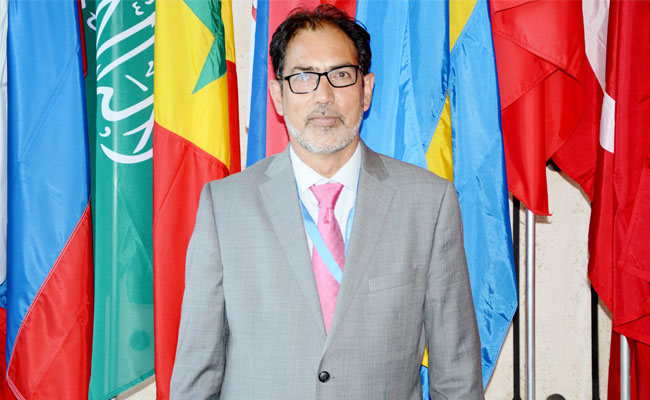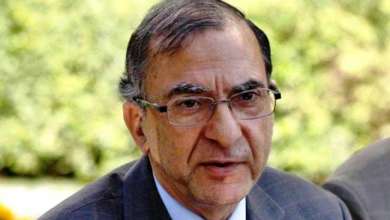27 October: A bloody trail of colonialism

| The invasion of Jammu & Kashmir by India on the fateful day of October 27 is the most dreadful incident of India’s colonial history that threw the region into throes of instability and perpetual violence. Right on this day in 1947 the leaders of the so-called secular India hurriedly rushed its troops to Srinagar in the dark of night trampling down under the jackboots the Kashmiris’ fundamental political and democratic rights for which the Indians had themselves fought for years together under and against the British rule. The shameful act, rightly censored by neutral observers as an act of aggression, not only put a stumbling block in the way of smooth and full implementation of the agenda of partition plan in the subcontinent but also laid a horrible foundation of the deadly conflict that threatens peace and stability in the South Asian region. Etched deep down into the collective memory of the people of Jammu and Kashmir this bloody trail of colonialism haunts Kashmiris even after the passage of seven decades. The naked aggression on the princely state of Jammu and Kashmir ushered in decades of conflict leading to two full-fledged wars between Indian and Pakistan and decades long struggle against India’s illegal occupation of the territory. The unresolved dispute on one hand continues to bedevil relations between the two nuclear neighbours while on the other it poses most serious existential threat to Kashmiris who have been worst victims of the deadly conflict, which has now assumed dangerous proportions after the Indian fascist regime led by BJP stripped the region of its 70-year old special status guaranteed to it under article 370 of the Indian constitution. Over the years New Delhi has used its repressive state apparatus, Machiavellian machinations and colonial tactics as a tool to crush the ongoing liberation struggle in occupied Jammu & Kashmir, to seize the fundamental freedoms and liberties of the people and to silence the political dissent in the region. Notwithstanding to its commitments on Kashmir the successive Indian governments and rulers have unabashedly pursued a policy of deceit and deception to neutralize the Kashmiri masses’ legitimate demands for holding a referendum under the auspicious of the world’s highest forum the United Nations, which had guaranteed the right to self-determination to the people of Jammu and Kashmir through a number of unanimously accepted resolutions. The resolutions calling for a free and impartial plebiscite in the region was endorsed by the Indian representative in the UN Security Council in particular the then Prime Minister Jawaharlal Nehru who was the first to approach the highest forum on the matter. After debating the issue the UN set-up a commission (United Nations Commission for India and Pakistan), followed by a series of resolutions in 1948 and 1949, which upheld the Kashmiris’ right to self-determination. In the meanwhile the UN proposed a comprehensive roadmap seeking peaceful settlement of Kashmir dispute but 73 years down the line Indian state is still reluctant to implement this roadmap. Instead of creating congenial atmosphere to pave a way for an amicable settlement of the dispute in line with the UNSC resolutions India played dilly delaying tactics to defer the holding of referendum in the region. With the advent of the ongoing mass resistance in Kashmir New Delhi deployed over a half million military and paramilitary troops to suppress the freedom struggle besides fortifying its illegal hold over the territory, which over the past 30 years has led to large scale death and destruction and loss of tens of thousands of Kashmiris particularly the youth have been on the forefront of the liberation struggle. However, in the wake of India’s illegal and unilateral actions of 05 August last year, these atrocities have intensified to manifolds. Having witnessed a year long siege and communication blockade the people of the Indian occupied Kashmir are forced to live in constant fear and anxiety. During the last fourteen months, India has illegally detained 13000 Kashmiri youth, tortured many of them, summarily executed young boys, put down protests violently, including the use of pellet guns against peaceful protestors and imposed collective punishment by demolishing homes and burning entire neighborhoods and villages. A series of new laws in particular the redefinition of the state’s age old domicile law have stoked fears of demographic change in the region. Moreover, the settler colonialism policies of the Indian government, which mirror Israel’s policies have instilled a sense of fear among Kashmiris who feel increasingly unsafe and insecure even in their homes. Unfortunately, the bloodshed that India started in occupied Jammu and Kashmir in 1947 is still going on unabated. Kashmiris on both sides of the ceasefire line are getting killed day in and day out by trigger happy Indian forces. The unprovoked shelling by the Indian troops and targeting civilian population on this side of the ceasefire line is yet another dark and dangerous aspect of this long drawn conflict, which has resulted in the killing of hundreds of civilians including the school going children and women. The dispute, if left unresolved, is bound to consume more precious lives besides fuelling unrest in this highly volatile region. Under the given situation, the first and foremost responsibility of the global community is to take effective cognizance of the prolonged military occupation and play its due role to mount pressure on the Indian government to settle the conflict in accordance with relevant resolutions of the Security Council, which have promised the people of Jammu and Kashmir their right of self-determination. In the meantime, effective mechanisms are needed to be put in place to check the impunity enjoyed by the Indian occupation forces and stop Indian government from pursuing settler colonial policies which are creating further political, economic and territorial marginalization of the Kashmiris. Writer is Chairman Kashmir Institue of International Relations and vice Chairman JKNF can be reached at saleeemwani@hotmail.com |





